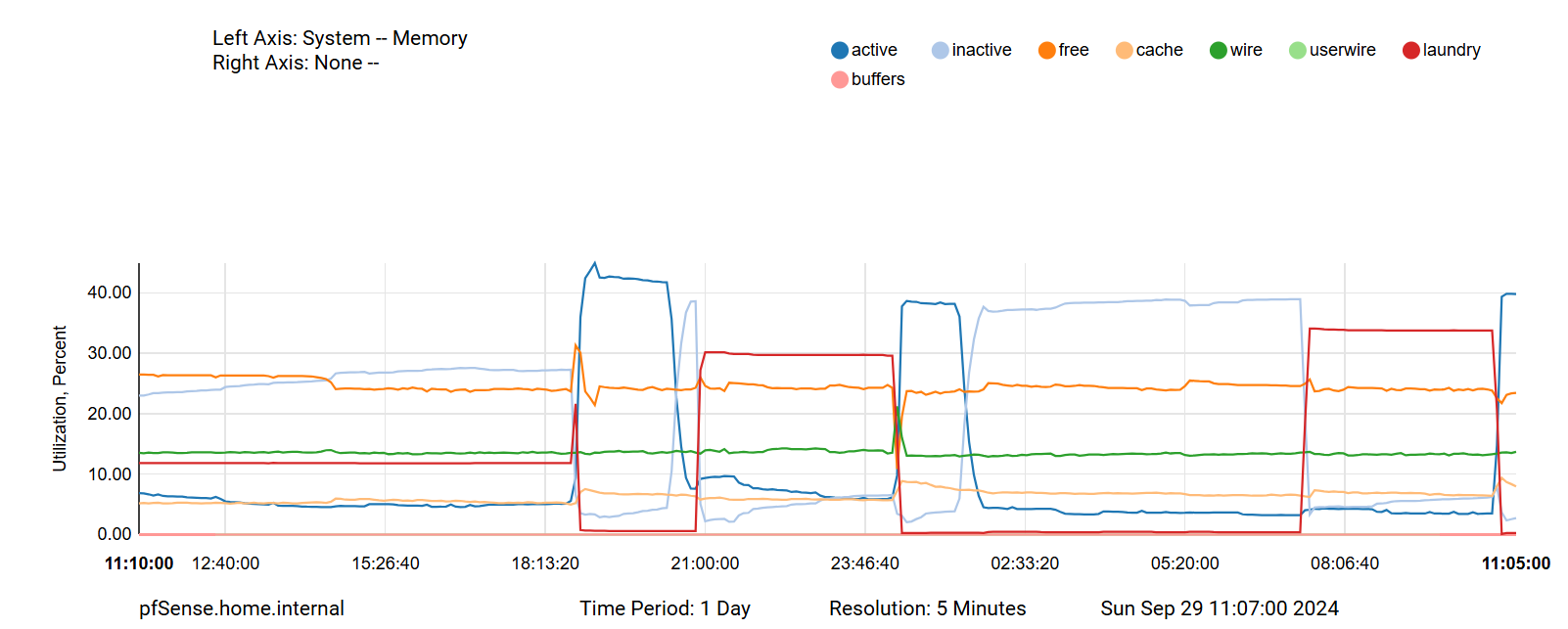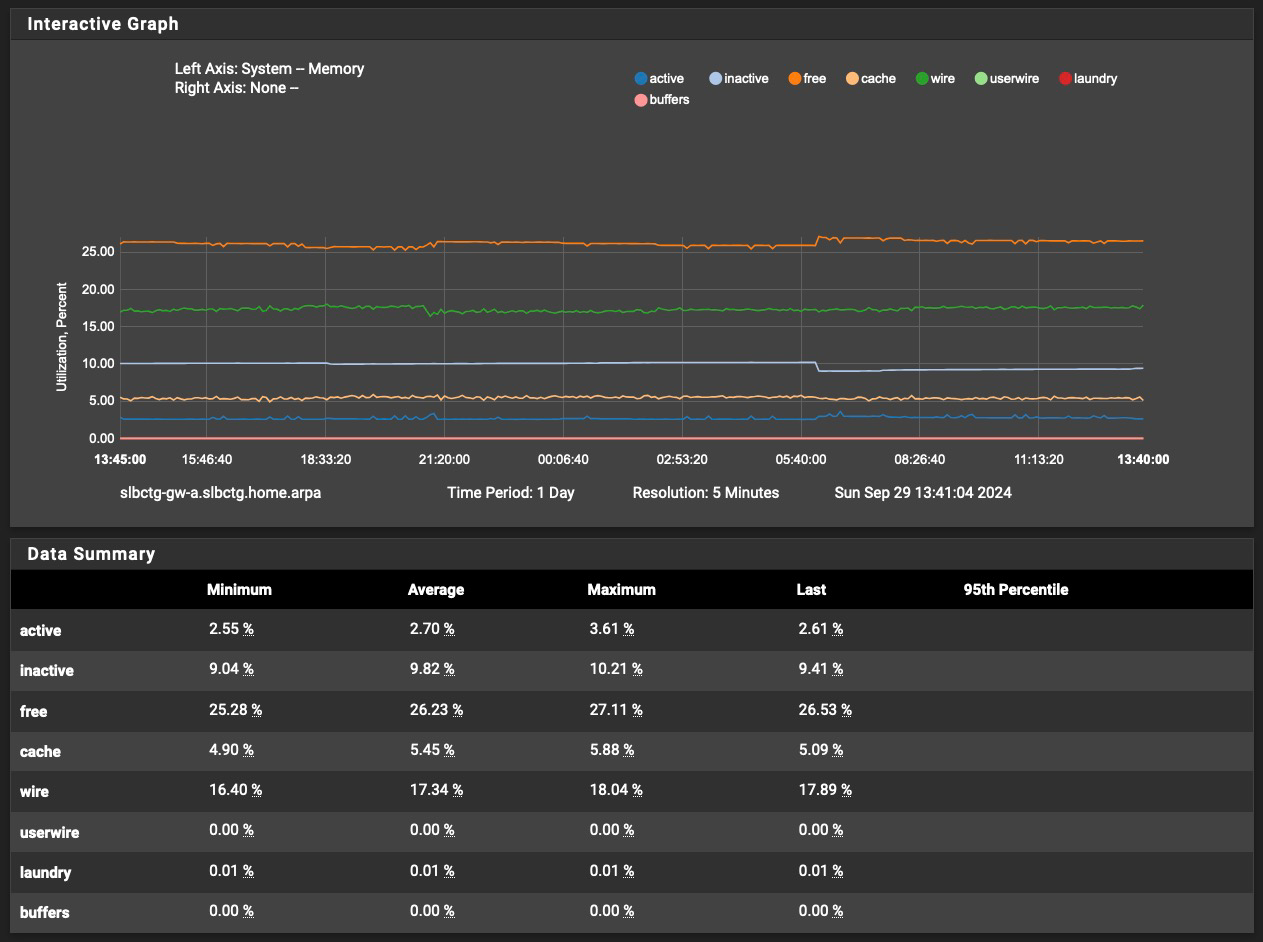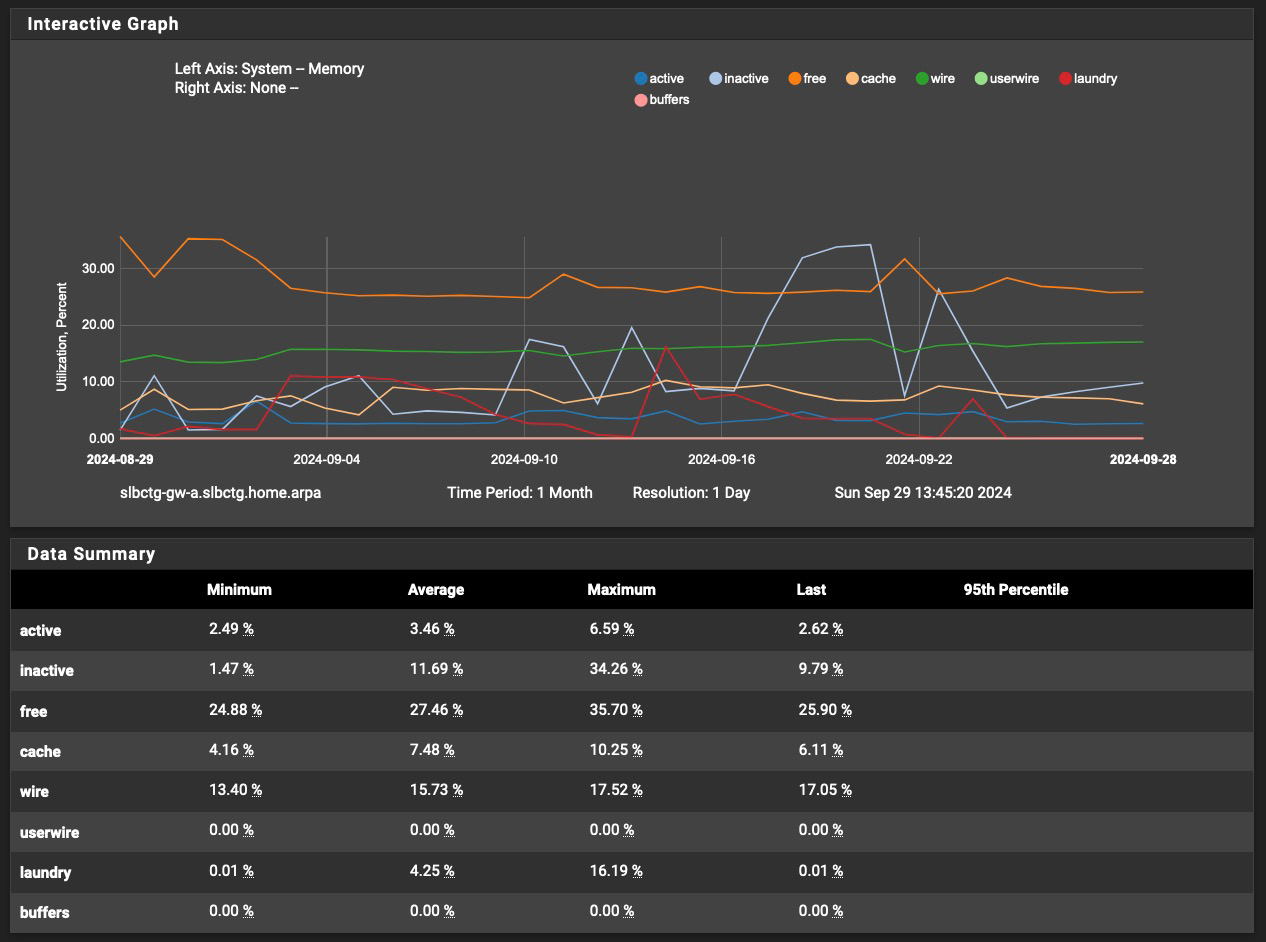Repeating problem: (unbound), jid 0, uid 59, was killed: failed to reclaim memory
-
@Mission-Ghost we you could always configure usb drive to be your swap
-
It's been a little over six days without an unbound related failure following my restoration of some advanced parameters to default values. However, unbound was killed last night by the kernel, again, for "failure to reclaim memory:"
Sep 20 23:44:01 php-cgi 55719 servicewatchdog_cron.php: Service Watchdog detected service unbound stopped. Restarting unbound (DNS Resolver) Sep 20 23:43:17 kernel pid 24149 (unbound), jid 0, uid 59, was killed: failed to reclaim memoryNo relationship to pfBlocker in the logs. pfBlocker did not restart at this time.
So reducing memory requirements via parameters a week ago helped, but did not completely resolve the problem.
So, I have now reduced the number of hosts to cache from 20,000 to 10,000 (the default) and increased unbound logging from level 1 to level 2 to see if I get any useful information from the unbound logs. At level 1 there are no unbound log messages prior to servicewatchdog restarting it...so it dies without a word. Only the system log offers a hint, shown earlier.
The system log message continues to suggest a memory leak or garbage collection failure and no error trapping for what is happening. Based on earlier comments, this issue does seem more specific to my 1100 than other models and pc or homebrew hardware.
I don't like having to run service watchdog, and, as other have suggested, it should not be necessary. But I like less having DNS go down randomly with few specific and actionable clues and kill production on the network in a way that requires my manual intervention at all hours of the day or night.
Where else should I look for better, relevant error messages that would more clearly diagnose what's going on?
-
@Mission-Ghost I am facing the same issue with a similar config (SG-1100 with pfblockerNG, but no watchdog - yet..., service restarts do not seem connected to pfblocker updating the block lists).
What I noticed today: Everything was fine until I logged in to the UI to check on uptime (had a separate issue in the past days). As soon as I logged in, unbound was killed with the same message in the logs you are seeing.
What I noticed when looking at the memory graph with a higher resolution is that right before unbound gets killed "laundry" was quite high - not sure what this could mean though (if at all)...


-
Still sounds like unbound is the unwilling victim.
What version are you running ?was quite high - not sure what this could mean though
Laundry
Queue for managing dirty inactive pages, which must be cleaned ("laundered") before they can be reused.
Managed by a separate thread, the laundry thread, instead of the page daemon
Laundry thread launders a small number of pages to balance the inactive and laundry queuesFrequency of laundering depends on:
How many clean pages the page daemon is freeing; more frees contributes to a higher frequency of laundering
The size of the laundry queue relative to the inactive queue; if the laundry queue is growing, we will launder more frequentlyPages are scanned by the laundry thread (starting from the head of the queue):
Pages which have been referenced are moved back to the active queue or the tail of the laundry queue
Dirty pages are laundered and then moved close to the head of the inactive queue--
Everything was fine until I logged in to the UI to check on uptime
https://forum.netgate.com/topic/177559/solved-23-01-r-20230202-1645-2500-mb-laundry
although this was a while ago -- and during an RC but
a) there are some diagnostics suggested in the thread. and;
b) it appears in that case laundry was impacted by the dashboard.
it doesn't say unbound died as a result, so the high "Laundry" may just be an artifact of the dashboard starting?You're using
DNSBL Mode: Unbound python mode
right? (that would be the "less" memory consuming option -
@jrey I am using 24.03 like the OP and the unbound python mode.
Regarding the diagnostics I am not sure what to look for - especially since right now everything is fine again. I looked at memory consumption and right now unbound is at the top followed closely by php/nginx.
As for the OP it happens sporadically - everything sounds pretty similar.
-
@Pizzamaka said in Repeating problem: (unbound), jid 0, uid 59, was killed: failed to reclaim memory:
everything sounds pretty similar.
it does
I think the suggestion on the other thread is to run the command with the sort option and see which process is increasing memory usage .
-
It's now been eight days since I reduced the number of hosts to cache from 20,000 to 10,000. I have not had an unbound processed killed in this time period.
So far, it appears this change has helped.
With respect to later posts, my 1100's memory usage over the last eight days looks like this:

Over the last month, it has looked like this:

Best as I can tell this issue is a combination of a number of factors, as none of the previous changes seemed to fully prevent the issue. Changes prior to the number of hosts to cache change increased the time period between failures, but didn't solve the problem.
I'll check in after a while longer to report whether unbound has failed (been killed) again or if the up-time trend continues.
Thank you to everyone for your comments and input. I still think there's a pointer or garbage collection related issue indicated. Maybe NG feels there isn't a need to fix this given the upcoming changes to the DNS server infrastructure...?
-
Something interesting I found that I cannot assess due to lack of knowledge. Here it says that changing the blackhole behaviour of unbound (in our case probably a pfblockerNG setting) reduced memory usage of unbound from ~400MD to 60MB.
does this sound reasonable? -
@Pizzamaka said in Repeating problem: (unbound), jid 0, uid 59, was killed: failed to reclaim memory:
Something interesting I found that I cannot assess due to lack of knowledge. Here it says that changing the blackhole behaviour of unbound (in our case probably a pfblockerNG setting) reduced memory usage of unbound from ~400MD to 60MB.
does this sound reasonable?I'm no expert either, but this makes some sense. There is a black-hole web site in pfBlocker, which has never worked on my system.
That web server and what-have-you has to use some memory of course, so shutting it off, especially when it adds no value to me, doesn't seem like it should hurt.
I'll try to report back. Still no more crashes now nine days since the last change to my SG-1100 pfSense unbound parameters.
-
Since reducing number hosts to cache in unbound from 20,000 to 10,000 on September 23, 2024 (in addition to other setting changes I made earlier which did not fully address the problem), I have had no more unbound killed events.
I did not try changing pfBlocker parameters, since it's stable now and I didn't want to confound the results of the number hosts change experiment.
If I get another unbound killed event I'll report back. Otherwise, it seems the above discussed changes have helped significantly reduce or eliminate the issue on the SG-1100.
It would be helpful if parameters could either be constrained by product model or memory size or otherwise to prevent making settings that can cause failures. This, plus well written error messages that follow a solid design convention would be a significant product improvement.
Thanks again to all who chimed in on this frustrating issue. You were very helpful.
-
I totally agree on the meaningful error messages. I also wonder if there shouldn't be a mechanism to restart a critical service intelligently (since as I learned above, watchdog is not intelligent enough).
Another thing you might want to try @Mission-Ghost is to update pfBlockerNG. I learned that packages do not auto-update. When looking at the package list (now a widget on my dashboard) it allowed to start an update.